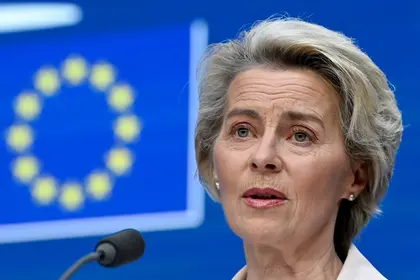Back in November, Hungary had seized 870 million euros ($925 million) worth of Russian assets, according to a recent European Commission summary, although the Hungarian state had previously reported only one seizure to Brussels valued at 3,000 euros ($3190) according to Hungarian newspaper Népszava .
Compared with Bulgaria, the Czech Republic, and Slovakia, where only a few million euros have been frozen, the 870 million euros seizure in Hungary is substantial.
JOIN US ON TELEGRAM
Follow our coverage of the war on the @Kyivpost_official.
The private assets of Russians frozen in the EU member states are now estimated at about 19 billion euros ($20 billion) in total. EU institutions are currently working to make it possible to use the frozen assets for the rebuilding of Ukraine.
At the end of November, the head of the European Commission, Ursula von der Leyen, suggested creating a special structure for managing frozen Russian funds.
According to von der Leyen, "after the sanctions are lifted, these funds can be used to ensure that Russia fully compensates for the damage caused to Ukraine."
In an EU Commission assessment, Ukraine's losses during the conflict amounted to about 600 billion euros ($638 billion). The statement indicates that the West has blocked about 300 billion euros ($319 billion) of the Central Bank of Russia and 19 billion ($20 billion) of private funds of Russian business.

When the West’s Stupidity Prevents Ukraine’s Victory
By now the EU has imposed criminal sanctions against 1,241 individuals and 118 entities over the war against Ukraine. The sanctions list includes politicians, soldiers, businesspersons, oligarchs and Kremlin propagandists.
You can also highlight the text and press Ctrl + Enter






